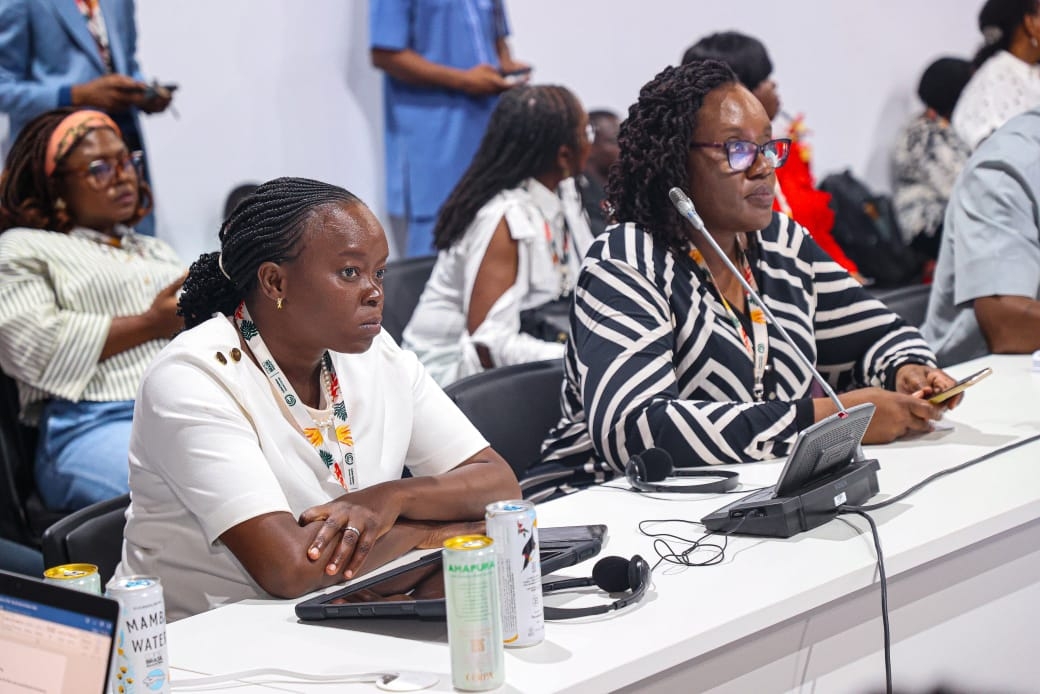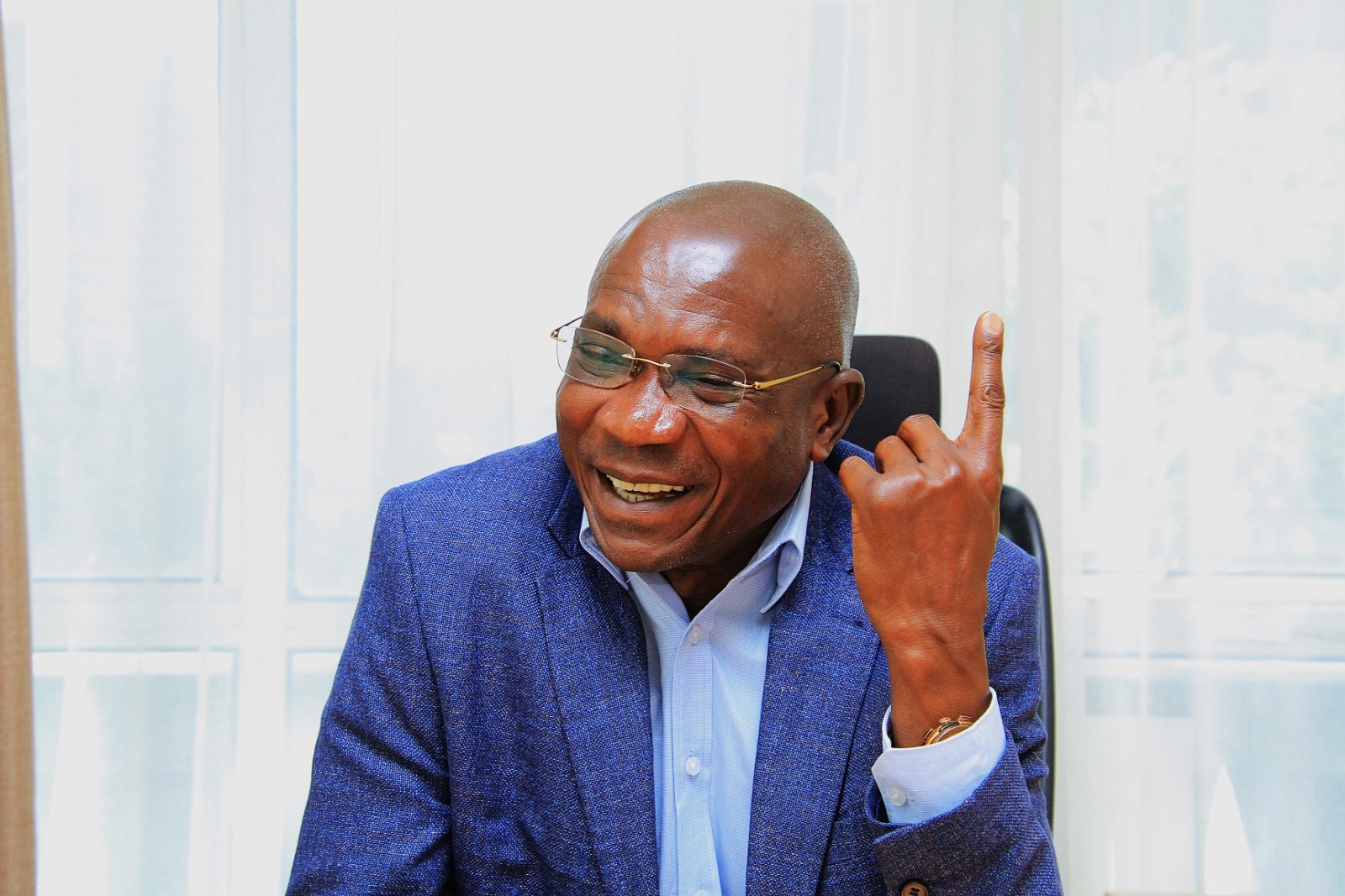

As world leaders gather in Belém, Brazil for COP30, ten years after the Paris Agreement, one message is clear: the time for pledges has passed; the time for concrete actions has come.
The world is being called to move from promises to proof, from commitments on paper to solutions that work.
For Kenya and Israel, two nations defined by resilience and ingenuity, this is not just a diplomatic talking point.
It is our lived reality, and it is where our cooperation can make a difference.
For both countries, climate change is not an abstract issue, it is personal and immediate.
In Kenya, families have felt the devastation of prolonged droughts that have dried rivers, weakened livestock herds, and threatened food systems.
In recent seasons, the paradox has been more painful, floods washing away homes, farmlands, and infrastructure.
These extremes have reshaped communities and threatened livelihoods.
Yet, amidst these challenges, I have witnessed a remarkable sense of resilience and innovation among Kenyans who are turning adversity into action.
In Israel, people too are adapting to a new reality and the growing weight of a changing climate.
Summers that are longer and hotter, droughts that linger, and forests threatened by wildfires.
Along our Mediterranean coast, rising sea levels and saltwater intrusion are affecting communities much like Kenya’s coastal regions.
Forest fires and shifting rainfall patterns continue to strain ecosystems, water supplies, and agricultural productivity reminding us that climate change is not confined by borders, it is a shared struggle demanding shared innovation.
But for Israel, adaptation for climate change has long been our way of life.
Much of our land is desert, and water scarcity has defined our national experience for generations.
We learned early that climate resilience is not optional — it is essential.
Through deliberate policy, research-driven innovation, and strong public–private partnerships, Israel transformed its environmental challenges into engines of technological progress.
Today, there are 946 climate-tech Israeli startups tackling challenges in renewable energy, climate-smart agriculture, water security, and sustainable food systems.
We have developed desalination plants, off-grid irrigation systems that draw water from air humidity, and technologies that recycle nearly 100 per cent of wastewater for agricultural use.
These are not theoretical prototypes; they are solutions currently operating in Israel and across the world in regions facing conditions similar to Kenya’s arid and semi-arid lands.
In 2024 alone, Israel invested US$613 million in climate technologies.
Behind these investments is a simple philosophy: innovation must be practical, scalable, and designed to make life better for people.
Kenya, too, has laid the groundwork for climate-driven growth.
Through the Climate Change Act (Amendment) 2023, the Long-Term Low Emissions Development Strategy (2022–2050), and the National Climate Change Action Plan (2023–2027), the government has created a framework that encourages innovation, technology, and climate finance.
Kenya’s leadership in renewable energy is globally recognized, with over 90 per cent of its electricity generated from clean sources such as geothermal, hydro, wind, and solar.
These are achievements many nations admire.
Kenya’s leadership was evident during the 2023 Africa Climate Summit in Nairobi and again this year as it submitted an enhanced climate plan under the Paris Agreement, a clear sign that Africa is not waiting to act.
These efforts demonstrate that Kenya is not only shaping its own green future but also setting the pace for the continent’s climate action and innovation.
But there is still enormous potential to do more, especially through partnerships that combine Kenya’s entrepreneurial spirit with Israel’s experience in transforming scarcity into opportunity.
By linking our research institutions, innovators, and investors, we can build climate-tech clusters that bring together the best of both worlds.
This collaboration could drive progress in sustainable agriculture, water recycling, clean energy, and desert farming technologies, unlocking the productivity of Kenya’s vast arid lands.
Our two nations share a deep culture of ingenuity and a belief that necessity drives invention. Kenya’s vibrant youth, when connected to global innovation networks, can power Africa’s green transformation.
Imagine joint research hubs, startup accelerators, and innovation exchanges between Kenya and Israel, building a bridge of ideas that address real challenges, from drought resilience to food security.
Whether it’s a farmer in Makueni testing drip irrigation inspired by the Negev Desert, or Israeli researchers learning from Kenya’s renewable energy models, our partnership proves that innovation is most powerful when it serves people.
As COP30 focuses on climate finance, renewable energy transition, scaling adaptation technologies, and protecting vital ecosystems like the Amazon, Africa’s voice must remain central.
The continent contributes only 4 per cent of global emissions yet faces some of the most severe impacts.
This is why cooperation towards applying practical solutions, not isolation, must define the decade ahead.
Climate action is ultimately about people, about dignity, livelihoods, and the right of every child in Kenya, Israel, and beyond to inherit a livable planet.
As we take stock at COP30, let us remember that innovation and solidarity are our greatest renewable resources.
The time for that future is now. Tuchangamkie fursa hii kwa pamoja — let us embrace this opportunity together.
Gideon Behar is the Ambassador of Israel to Kenya and Ambassador
Designate of Uganda, Tanzania, Malawi & Seychelles
















